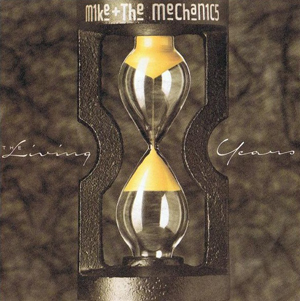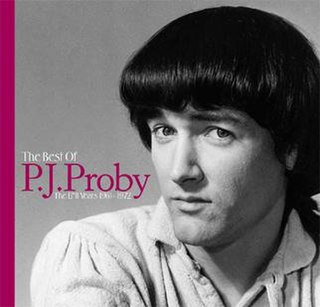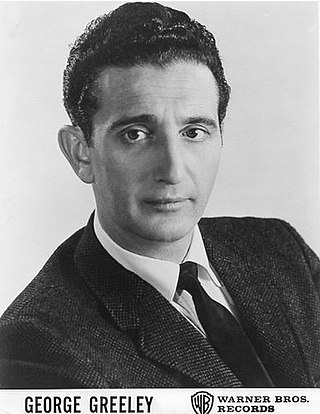Related Research Articles

P. J. Proby is an American singer, songwriter, and actor.

"Downtown" is a song written and produced by English composer Tony Hatch. Its lyrics speak of going to spend time in an urban downtown as a means of escape from everyday life. The 1964 version recorded by British singer Petula Clark became an international hit, reaching number one on the Billboard Hot 100 and number two on the UK Singles Chart. Hatch received the 1981 Ivor Novello award for Best Song Musically and Lyrically.

"Hold Me, Thrill Me, Kiss Me, Kill Me" is a song by Irish rock band U2. It was released as a single from the soundtrack album for the film Batman Forever on 5 June 1995 by Atlantic and Island. A number-one single in their home country of Ireland, as well as in seven other countries, it reached number two on the UK Singles Chart, number sixteen on the US Billboard Hot 100, and number one on the Billboard Album Rock Tracks and Modern Rock Tracks charts. The song received Grammy Award nominations for Best Rock Performance by a Duo or Group with Vocal and Best Rock Song. The song is included on the compilation album The Best of 1990–2000 and the live album From the Ground Up: Edge's Picks from U2360°. Its music video was directed by Kevin Godley and Maurice Linnane.
Brian Alexander Robertson is a Scottish musician, composer and songwriter. He had a string of hits in the late 1970s and early 1980s characterised by catchy pop tunes and jaunty humorous lyrics, including "Kool in the Kaftan", Knocked It Off", "To Be or Not to Be" and "Bang Bang", a tongue-in-cheek commentary on famous historical and fictional couples. He wrote with Mike Rutherford of Genesis the Grammy-nominated and Ivor Novello Award-winning "The Living Years". It was a number one hit in the US, Canada, Australia and Ireland and reached number 2 in his native UK. He has also written music for films and been a television presenter.
Shine is a popular song with lyrics by Cecil Mack and Tin Pan Alley songwriter Lew Brown and music by Ford Dabney. It was published in 1910 by the Gotham-Attucks Music Publishing Company and used by Aida Overton Walker in His Honor the Barber, an African-American road show. According to Perry Bradford, himself a songster and publisher, the song was written about an actual man named Shine who was with George Walker when they were badly beaten during the New York City race riot of 1900.
"Try a Little Tenderness" is a song written by Jimmy Campbell, Reg Connelly, and Harry M. Woods.

"The Living Years" is a soft rock ballad written by B. A. Robertson and Mike Rutherford, and recorded by Rutherford's British rock band Mike + The Mechanics. It was released in December 1988 in the United Kingdom and in the United States as the second single from their album Living Years. The song was a chart hit around the world, topping the US Billboard Hot 100 on 25 March 1989, the band's only number one and last top ten hit on that chart, and reaching number-one in Australia, Canada and Ireland and number 2 in the UK. It spent four weeks at number-one on the US Billboard Adult Contemporary chart. Paul Carrack sings lead vocals on the track.
"(There's) Always Something There to Remind Me" is a song written by American songwriting duo Burt Bacharach and Hal David. Originally recorded as a demo by Dionne Warwick in 1963, "(There's) Always Something There to Remind Me" first charted for Lou Johnson, whose version reached No. 49 on the Billboard Hot 100 in mid-1964. Sandie Shaw took the song to No. 1 in the UK that same year, while the duo Naked Eyes had a No. 8 hit with the song in the US two decades later in 1983.
Leo F. Reisman was an American violinist and bandleader in the 1920s and 1930s. Born and reared in Boston, Massachusetts, United States, Inspired by the Russian-American violinist Jascha Heifetz, Reisman studied violin as a young man. After being rejected by the Boston Symphony Orchestra, he formed his own band in 1919. He became famous for having over 80 hits on the popular charts during his career. Jerome Kern called Reisman's orchestra "The String Quartet of Dance Bands".

"Shine a Little Love" is a song by English rock band Electric Light Orchestra (ELO). It was released as a single in the US and UK in 1979.
"Morningtown Ride" is a lullaby, written and performed by Malvina Reynolds. It was covered by The Seekers and their recording reached No. 2 on the UK Singles Chart. The song tells the comforting story of the journey through nighttime made by all the "little travellers" (children), on board a train, with the Sandman as guard.

The Best of the EMI Years: 1961-1972 is a compilation album released in 2008 celebrating the career of P. J. Proby.

"There's Always Me" is a 1961 song by Elvis Presley originally on the album Something for Everybody. The song was also released as a single in 1967.

George Greeley was an Italian-American pianist, conductor, composer, arranger, recording artist and record producer who is known for his extensive work across the spectrum of the entertainment industry. Starting as an arranger and pianist with several notable big bands in the 1940s, he segued into the Hollywood radio scene, working on several nationally broadcast variety programs. After conducting an Army Air Force Band during World War II, he was hired by Columbia Pictures as a staff pianist and orchestrator. He worked as pianist on several hundred motion pictures, worked with many famous composers orchestrating their soundtrack compositions, and created original compositions of his own in several dozen movies. It was Greeley's hands that performed the piano parts that Tyrone Power mimed in The Eddy Duchin Story. Concurrent with his work at Columbia Pictures, George Greeley also worked at Capitol Records as music director, pianist, and conductor for many artists such as Gordon MacRae, Jane Powell, Jo Stafford, Frankie Laine, and Doris Day. He was hired in the late 1950s by the newly established Warner Brothers Records. George Greeley arranged, orchestrated and performed as primary artist for a series of hit recordings entitled "Popular Piano Concertos." As music tastes changed in the late 1960s, Greeley had already moved into television, composing themes and music for popular TV series like My Favorite Martian,The Ghost and Mrs. Muir,Nanny and the Professor, and Small Wonder. He performed as featured piano soloist and as guest conductor in concert appearances around the world. He died from emphysema at age 89 in Los Angeles, California.

Sincerely is the sixth studio album by American singer Brenda Lee. The album was released February 12, 1962 on Decca Records and was produced by Owen Bradley. It was the first of two studio albums released by Brenda Lee in 1962 and did not contain any singles.
"She Cried" is a song written by Ted Daryll and Greg Richards; it was initially recorded by Ted Daryll in July 1961, but was a big hit when covered by Jay and the Americans for their 1962 album, She Cried. In 1962 the song reached number 5 on the Billboard Hot 100 and number 1 on WLS. The song was the group's first major hit.
"With These Hands" is a song written by Benny Davis and Abner Silver and performed by Eddie Fisher featuring Hugo Winterhalter and His Orchestra. It reached number 7 on the U.S. pop chart in 1953.
"Mission Bell" is a song written by William Michael and Jesse Hodges and performed by Donnie Brooks, with backing vocals by The Blossoms. It reached number 7 on the U.S. pop chart in 1960. It was featured on his 1961 album, The Happiest.
References
- ↑ Vaché, Warren W. (2000). The Unsung Songwriters: America's Masters of Melodies. Scarecrow Press. pp. 269, 358. ISBN 0810835703 . Retrieved 8 February 2018.
- ↑ Millward, Steve (2017). Changing Times: Music and Politics in 1964. Troubador Publishing Ltd. pp. 146–7. ISBN 978-1788030588 . Retrieved 8 February 2018.
- ↑ "P. J. Proby". Official Charts. Retrieved 8 February 2018.
- ↑ Larkin, Colin (2011). The Encyclopedia of Popular Music. Omnibus Press. p. ?. ISBN 978-0857125958 . Retrieved 8 February 2018.
- ↑ "B. A. Robertson". Official Charts. Retrieved 8 February 2018.
- 1 2 3 4 "Dave Oppenheim ••• Top Songs as Writer ••• Music VF, US & UK hits charts". www.musicvf.com. Retrieved 2020-10-21.
- ↑ "Song title 554 - Hold Me". tsort.info. Retrieved 21 October 2020.
- ↑ "Every AMR Top 100 Single in 1964". www.top100singles.net.
- ↑ "Top RPM Singles: Issue 4688." RPM . Library and Archives Canada.
- ↑ "CHUM Hit Parade, week of November 23, 1964". 23 November 1964. Retrieved 21 October 2020.
- 1 2 "The Irish Charts – Search Results – Hold Me". Irish Singles Chart.
- ↑ "flavour of new zealand - search lever". Flavourofnz.co.nz. Retrieved 2020-10-21.
- ↑ "P.J. Proby: Artist Chart History". Official Charts Company.
- ↑ "P.J. Proby Chart History (Hot 100)". Billboard.
- ↑ "The Baskerville Hounds Chart History (Hot 100)". Billboard.
- ↑ Kent, David (1993). Australian Chart Book 1970–1992 (illustrated ed.). St Ives, N.S.W.: Australian Chart Book. p. 254. ISBN 0-646-11917-6.
- ↑ "BA Robertson: Artist Chart History". Official Charts Company.